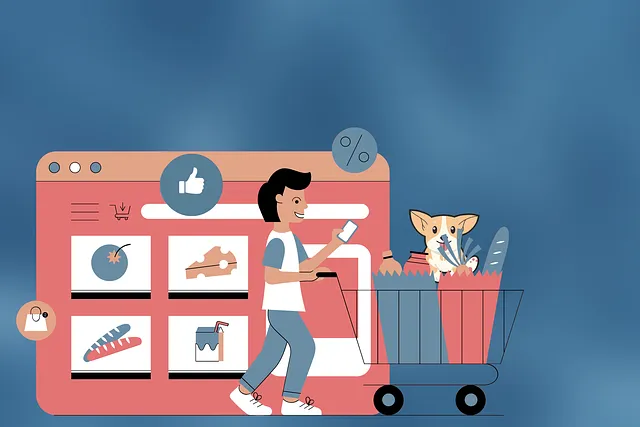Anonymity is crucial in academic research and journalism, especially when addressing sensitive topics like crime. Private Internet Access (PIA) offers a robust solution by anonymizing search queries and protecting users' digital footprints, thereby enhancing privacy and security. By hiding IP addresses, PIA enables researchers and journalists to conduct investigations freely without fear of surveillance, ensuring confidentiality and fostering trust in the research process, particularly when tackling sensitive matters like crime trends.
In today’s digital age, online anonymity plays a pivotal role in academic research, especially for studies involving sensitive topics. Private Internet Access (PIA) offers researchers a secure and anonymous browsing experience, enhancing data privacy. This article explores the significance of PIA in academia, highlighting its benefits for safeguarding researcher identities. We provide a comprehensive guide on implementing PIA and present compelling case studies, such as anonymizing searches for journalists investigating crime, demonstrating its practical value in real-world scenarios.
- Understanding Anonymity and its Role in Academic Research
- The Benefits of Private Internet Access for Researchers
- Implementing PIA: A Step-by-Step Guide for Academics
- Case Studies: Anonymizing Searches in Crime Reporting using PIA
Understanding Anonymity and its Role in Academic Research

In academic research, maintaining anonymity is often crucial, especially when exploring sensitive topics or conducting studies that involve personal data. This concept is akin to the anonymizing search techniques used by journalists investigating crime, where source confidentiality is vital for ethical and effective reporting. For researchers, anonymity safeguards participants’ privacy, encourages honest responses, and fosters a trustful relationship between investigators and subjects.
Anonymity plays a multifaceted role in academic research, enabling scholars to navigate complex ethical landscapes, protect vulnerable populations, and ensure the integrity of their findings. By shielding personal identifiers, researchers can conduct studies on diverse subjects—from exploring societal issues to analyzing individual behaviors—without compromising privacy or influencing participants’ willingness to participate. This practice is especially relevant in fields like sociology, psychology, and healthcare, where sensitive information forms the backbone of significant research contributions.
The Benefits of Private Internet Access for Researchers

For academic researchers, especially those delving into sensitive or controversial topics, privacy and anonymity are paramount. Private Internet Access (PIA) offers a secure and encrypted connection that safeguards researchers’ online activities from prying eyes. This is particularly crucial when investigating matters involving state actors, corporate entities, or criminal organizations—where the risk of surveillance and data breaches is heightened.
By utilizing PIA, researchers can anonymize their search queries, browsing history, and overall internet activity. This feature is invaluable for journalists investigating crime, enabling them to protect their sources and maintain the integrity of their research. In an era where digital footprints are easily tracked, PIA ensures that academic inquiries and reporting remain confidential, fostering a more open and honest exploration of critical issues without fear of retribution or interference.
Implementing PIA: A Step-by-Step Guide for Academics

Implementing Private Internet Access (PIA) as a tool for enhancing privacy and security is an important step, especially for academic researchers engaging in sensitive data analysis or investigating controversial topics like crime trends. Here’s a straightforward guide to get started with PIA, focusing on benefits relevant to journalists and academics.
Begin by signing up for a PIA account, choosing a subscription plan suited to your needs. Download the PIA app onto all your devices and set up a secure connection. Configure your network settings to ensure every online activity is routed through the encrypted PIA tunnel. This step-by-step process allows researchers to anonymize their search queries, protecting their digital footprints while they delve into potentially sensitive data or explore controversial subjects without fear of surveillance. With PIA, IP addresses are masked, providing a layer of anonymity crucial for journalists investigating crime patterns and academics exploring contentious research areas.
Case Studies: Anonymizing Searches in Crime Reporting using PIA

Private Internet Access (PIA) offers a robust solution for researchers and journalists seeking to anonymize their online activities, particularly when investigating sensitive subjects like crime. By masking IP addresses, PIA enables users to conduct searches and access data without revealing their identities, thus enhancing privacy and security. This feature is especially valuable for reporters delving into potential criminal networks or uncovering information that could compromise their safety.
Case studies demonstrate the effectiveness of PIA in facilitating anonymous research. Journalists investigating organized crime rings have used PIA to search for patterns and connections without fear of being traced back to their sources or themselves. This level of privacy is crucial, ensuring reporters can navigate complex digital landscapes safely while gathering vital information for their stories.
Private Internet Access (PIA) emerges as a powerful tool for academic researchers, particularly those engaged in sensitive or controversial areas of study. By providing robust anonymity and encryption, PIA safeguards the privacy of research data and enables journalists investigating crime to conduct anonymizing searches without fear of exposure. The step-by-step guide outlined in this article facilitates easy implementation, empowering academics to protect their digital footprint and fostering a more open and secure academic environment.
